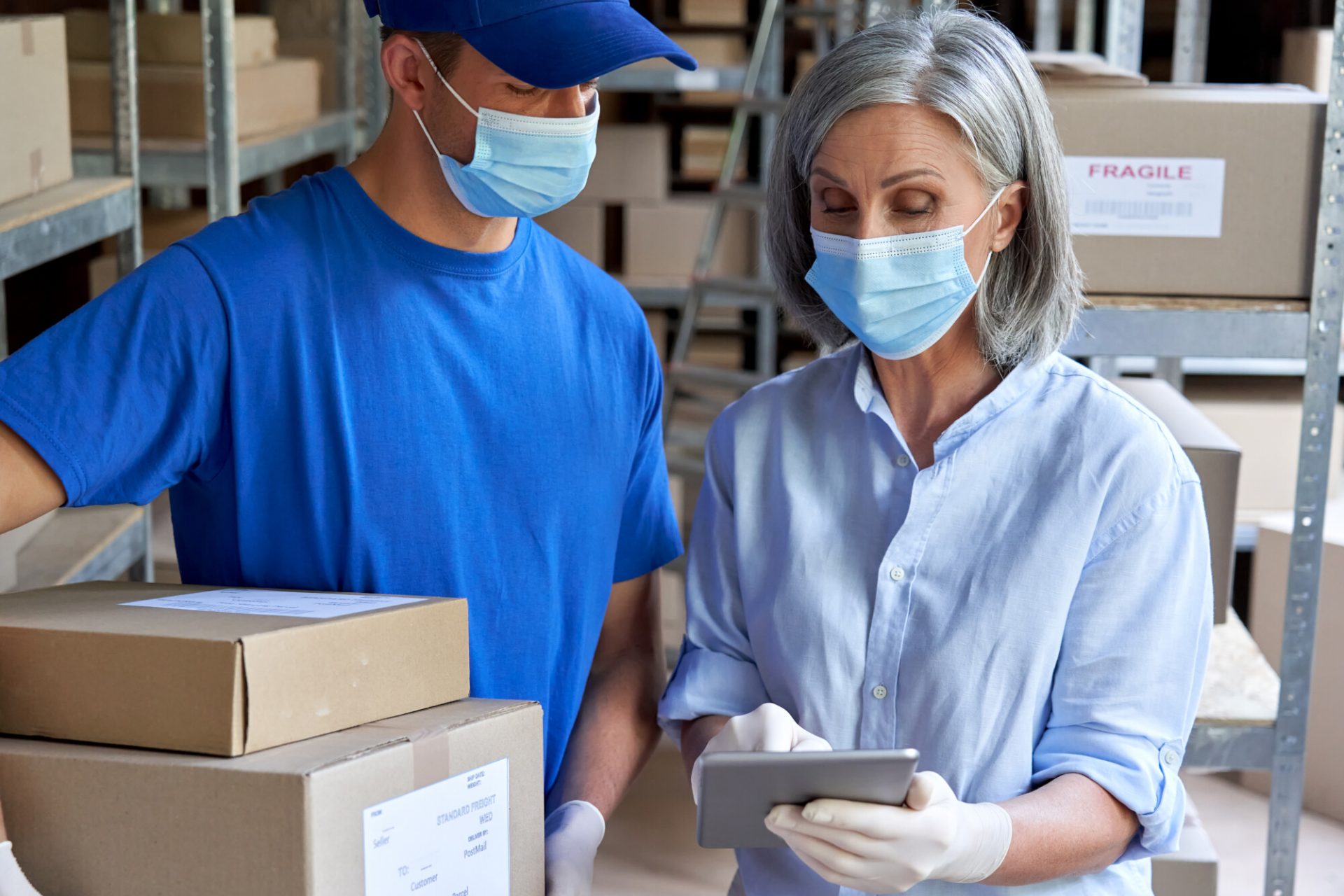7 Ways To Ensure Efficient And Secure Medical Delivery Services
6 Mins Read
Published on: 30 October 2023
Last Updated on: 19 March 2024

toc impalement
The healthcare industry has seen a major shift towards telemedicine and home delivery of medications and medical supplies over the past few years. While digital health services provide much-needed access and convenience for patients, ensuring the security and timely delivery of sensitive medical items remains a crucial concern.
This article will explore seven critical strategies medical delivery services can implement to optimize efficiency and tighten security protocols. Patients expect and deserve discreet, prompt delivery and total peace of mind regarding their medical needs. The following tips will help home delivery companies meet and exceed these expectations in today’s increasingly virtual healthcare landscape.
Understanding Regulatory Compliance
Grasping the regulatory landscape is vital in the medical courier business. Standards like the Health Insurance Portability and Accountability Act (HIPAA), the Occupational Safety and Health Administration (OSHA), and the Department of Transportation (DOT) govern our industry, safeguarding patient confidentiality and employee safety.
HIPAA rules preserve patient privacy, while DOT regulations ensure secure transportation of potentially hazardous medical materials. Meanwhile, OSHA sets safety standards for those handling risky substances, including medical waste.
The repercussions of non-compliance can be severe, ranging from costly fines to reputational damage or even business closure. It’s not enough to merely be aware of these laws; adherence to them is crucial to maintain a high service standard and ensure the longevity of your operations.
Understanding these regulatory bodies and their mandates helps clear legal pitfalls and fortifies your service’s quality.
Prioritizing Proper Training
Mastering the nuances of handling sensitive medical supplies and documents requires ample training. In medical courier services, a well-trained staff is an invaluable asset. Vital subjects in training include appropriate handling, secure storage, safe transportation, and proper disposal of medical materials.
Consider biological specimens; they may need special packaging and storage conditions from collection to delivery. By training your staff on these specifics, you can prevent mishandling that could compromise the specimens’ integrity.
Regulations evolve, and so must our training. Staying updated with the changing regulatory landscape and adjusting training programs accordingly prepares your team for any situation.
A continuous training program instills confidence in your team, enhances service quality, and reduces the likelihood of errors. It also demonstrates your commitment to maintaining high standards, which can elevate your reputation in this highly competitive industry. Consistent and comprehensive training is a non-negotiable aspect of efficient and secure medical delivery services.
Ensuring Security and Confidentiality
Security and confidentiality are twin pillars of trust in the medical courier industry. Often, we deal with sensitive information, like patient records and test results. Their inadvertent disclosure could have severe implications, breaching patient privacy and possibly violating regulations.
How do we circumvent these risks? It all boils down to robust data security measures. Employ encrypted data transmission and secure storage techniques to safeguard electronic data. When handling physical documents, implement strict controls over who can access and dispose of these items.
But security doesn’t end with delivery. Be meticulous about disposing of packaging that could inadvertently reveal patient details. It’s about extending the confidentiality commitment beyond the transaction, ensuring the privacy veil remains unbroken.
Ultimately, your steadfast commitment to security and confidentiality aligns you with regulations and helps you build a reputation for reliability and integrity. Your clients need to know that their sensitive materials are in safe hands. Show them that they are.
Implementing Efficient Route Planning
There’s an art to charting the quickest path from point A to point B – one that can profoundly affect your medical courier service. Let’s delve into route planning. It’s not just about shaving off minutes; it’s about precision, reliability, and maintaining your delivery promises.
Modern technology, such as GPS and route optimization software, is your ally. These tools plot the fastest routes and account for traffic, road works, and other potential snags. This means fewer delays and more satisfied customers.
And it’s not just about time. Efficient route planning also spells cost savings. Less time on the road equals lower fuel consumption and less wear and tear on your vehicles. You save on operating costs and reduce your environmental footprint simultaneously.
Your road map to success in the medical courier industry involves more than knowing the regulations and carefully handling materials. It also means plotting the fastest, most efficient course, helping you to deliver more than just packages – peace of mind.
Adopting Technology for Better Tracking and Reporting
In an increasingly data-driven world, using technology for tracking and reporting is a game-changer. It’s not just about where your packages are; it’s also about maintaining an unbroken chain of custody, reducing errors, and fostering transparency.
Advanced tracking technologies offer real-time visibility of your shipments, thus minimizing the chance of lost parcels and enhancing customer confidence. Moreover, digital records make it easier to spot trends, anticipate issues, and make informed decisions.
An important aspect of tracking is maintaining the chain of custody. It records every handoff a parcel goes through from sender to recipient. This can be crucial in medical deliveries where every interaction with the package needs to be recorded for compliance, accountability, and safety.
On the reporting front, technology helps streamline the process and reduce errors. Digital logs are easier to manage, update, and analyze than paper counterparts and are less prone to human error.
In essence, technology makes you faster, wiser, and more reliable. It’s your secret weapon for success in the courier industry.
Maintaining the Right Transportation Conditions
Picture this: a meticulously packed medical specimen, urgently needed for testing, arrives late or, worse, damaged due to improper transport conditions. It’s a courier’s nightmare and a gross disservice to the sender and receiver.
Transporting medical supplies is more than just a one-size-fits-all process. Different items require different conditions—some must be kept at precise temperatures, others need specific humidity levels, and certain supplies require careful handling to prevent damage.
So, how do we ensure we meet these varying conditions? The key lies in specialized transport vehicles equipped to handle these requirements. It’s about investing in vehicles with temperature-controlled cargo spaces, humidity regulators, and safety measures for delicate items.
Maintaining these conditions isn’t just about fulfilling a checklist; it’s about upholding the integrity of the items you carry. A deviation in temperature or mishandling can compromise the effectiveness of medical supplies or even render them useless.
The implications are vast, impacting your reputation as a courier and potentially life-saving medical procedures. So, remember: when transporting medical items, the right conditions are paramount.
Focusing on Customer Service
At the heart of all we do in the medical courier industry is a simple but fundamental truth: we’re in the business of people. Our end-users aren’t just nameless entities on a route. Health facilities, patients, and care providers rely on us to fulfill a crucial link in the healthcare chain.
So, how do we honor this trust? It starts with exceptional customer service. This means ensuring precise, timely, and open communication channels. It’s about proactive updates, availability to answer queries, and quick response times.
But communication is just the beginning. We also need to prioritize issue resolution. Mistakes happen, and when they do, swift, effective action can make all the difference. It’s not merely about remedying the problem but about understanding its root cause to prevent future occurrences.
Finally, embrace customer feedback. It’s a goldmine for improvement. Listening to our client’s experiences, praises, and criticisms can guide us toward better service delivery.
Remember, every successful delivery isn’t just a logistical victory; it’s a testament to our commitment to the people we serve. Excellent customer service isn’t just good business sense; it’s a moral imperative in our industry.
Conclusion
The journey through the medical courier service world is a well-calibrated marathon, not a dash. It’s an intricate dance balancing understanding compliance, continuous training, maintaining security, and fostering efficiency.
Leveraging technology aids in route planning and tracking while maintaining correct transit conditions and safeguards medical items’ integrity. High-quality customer service then puts the cherry on top, creating an experience marked by trust and satisfaction.
These strategies make the path less daunting, efficient, and highly secure. Here’s to a future of seamless medical deliveries—one secure delivery at a time.
Read Also:


















Comments Are Closed For This Article